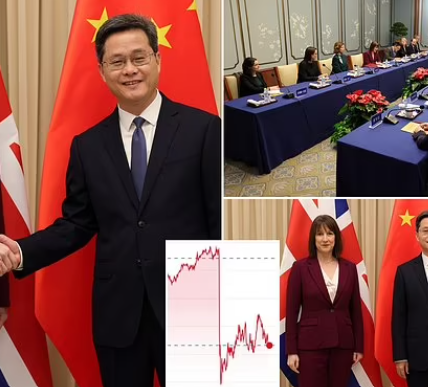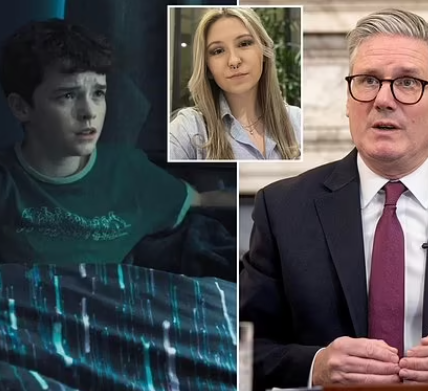Q&A: What are Labour’s plans on AI and copyright? Who will be affected? All you need to know about the Big Tech proposals alarming the creative world_Nhy
The Daily Mail has launched a major new campaign to protect Britain’s creative industries from the threat of AI – backed by senior figures from the worlds of music, media, film and publishing.
Ministers are proposing to change existing laws so that Big Tech firms can use any online material, such as text, images or music, to train their AI models – without respecting copyright laws that ensure creators are paid for their work.
Now the Mail is calling on Keir Starmer’s Government to urgently rethink the proposed changes and protect the artistic genius for which this country is famous.
But what are Labour’s plans – and who exactly will be affected? Read on to find out all you need to know…
What are Labour’s plans on AI and copyright?
The Government opened a public consultation on the issue last December, claiming its aim was to lure AI developers to the UK while safeguarding Britain’s creative industries.
Ministers said their preferred course was one under which AI firms would be given an exemption from copyright so they could collect – or ‘scrape’ – online material to train their AI models.
This would be known as a ‘text and data mining’ exception, and the firms would use it to make their models even more advanced and human-like.

Some of the country’s biggest stars, including Sir Paul McCartney, have already spoken out against the plans

Sir Elton John has also expressed his concerns, as many creatives fear original artistic works will be exploited to help AI produce artificial imitations
Under the plans, creative firms would have to specifically ‘opt out’ (or ‘reserve their rights’) from having their work exploited.
The consultation closes on Tuesday next week, with the Government aiming to publish its final plans within 12 weeks.
Why is Britain’s creative world so alarmed?
The great strength of the centuries-old British copyright law is that it gives an automatic protection for creators – works do not have to be registered.
Any creator, whether they are generating music, images, film, written works or journalism, gets that protection, so if their work is appropriated, they have a claim to fair compensation.
These protections have helped Britain’s cultural industry, including music, the arts, media, film and publishing, to become the envy of the world.
Critics say the Government’s proposal threatens to upend this. It would allow the tech giants, most of which are based abroad (typically in Silicon Valley), to ‘scrape’ whatever material they want unless its creators take specific steps to stop them.
Many believe it is simply not fair for creators, including thousands of musicians and authors, to be forced to employ lawyers and tech experts to notify AI developers, which include some of the biggest businesses in the world, that they want to opt out.
Why does Labour favour this plan?
Ministers say our copyright law is currently ‘unclear’ regarding AI – and that this is deterring tech bosses from innovating in Britain because they may be sued further down the line for ‘stealing’ work.

They claim the best way to support AI firms and safeguard artists is to require increased transparency from developers on what content they use to train models, while also introducing the ‘text and data mining’ exception.
Sir Keir Starmer and Chancellor Rachel Reeves are pushing desperately for economic growth – and think getting the AI giants to invest here can help.
Critics of the plans profoundly disagree. They argue Britain’s creative industry is worth £126billion and supports 2.4 million jobs – and should be protected. They also warn that any economic benefits would inevitably be funnelled abroad.
Are there other flaws in the plans?
Incredibly, there has been no economic assessment either in the consultation or in the Government’s AI Opportunities Action Plan of this ‘preferred’ proposal. Ministers hope it will lure AI firms to the UK, where they will invest their vast wealth in the country establishing data processing centres.
But the act of data ‘mining’ is exceptionally energy intensive and Britain’s electricity is among the most expensive in the world. Why would they put down roots here when they could mine information at a fraction of the price in California?
Who will be affected if the proposals go ahead?
Tens of thousands of creative figures in the worlds of music, film, art, publishing and media – and the millions of people in jobs linked to their work.
Some of the country’s biggest stars, such as Sir Paul McCartney and Sir Elton John, have already spoken out against the plans, fearing original artistic works will be exploited to help AI produce artificial imitations.
Britain’s free Press could also be affected, with online journalistic work plundered by the Big Tech data scrapers.
What do artists and creatives say?
They argue that copyright laws in Britain are not unclear in the slightest. In fact, they are very clear – if you use an artist’s work you must pay for it. Anything short of that is effectively ‘theft’. They suggest that for the past few years AI firms have conducted ‘theft’ on an industrial scale.
Now, instead of the Government enforcing copyright law and prosecuting these firms, they are changing the law to legalise it.
Among the many losers will be young, aspiring artists who have no big backing or resources to protect themselves.
It will erode our world-renowned cultural scene as AI replaces original creators.
Artists and creatives point to the fact there is no market need for this. There is not a lack of musicians, actors or authors creating beautiful works.
They insist that they are keen to embrace the potential of AI, but only in a fair manner.
Which proposal does Britain’s creative sector support?
Creatives are calling on the Government to strengthen, rather than weaken, existing copyright laws to guard against the threat of AI.
They want licensing in all cases. This would mean the Big Tech AI models could only be trained using copyrighted works in the UK with an express licence to do so. This in turn means they would have to strike deals to allow creators to share in any financial profits.


